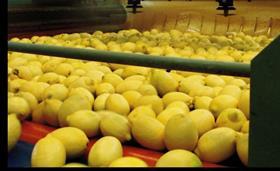
Russian authorities this week released the list of Turkish food imports subject to a ban by the country, set to commence on 1 January 2016.
From the start of next year, according to prime minister Dmitry Medvedev, Turkey will be unable to export oranges, tangerines, grapes, pears, apricots, peaches, nectarines, plums and strawberries to Russia, along with a small number of vegetables, namely tomatoes, cucumbers, cauliflower, broccoli and onions.
According to Turkish agriculture minister Faruk Celik, these sanctions will cost Turkey an annual US$764m in food exports.
However, the list is equally noticeable for its omissions, including prominent Turkish exports such as lemons, cherries, figs, grapefruit and a variety of nuts.
One Turkish lemon specialist suggested that Russia might be unable to replace Turkish lemons this season, since Spain remains banned, while Egypt could struggle to meet the demand due to a lack of volume. “Lemons are a staple,” he said, “so you have to have them.”
“We don’t send to Russia,” he went on, “but most Turkish companies do. We have heard that Russian customs are now being very strict, checking box by box, which can take a whole day. In Turkey, 90 per cent of fruit and vegetables are sent to the Russian market. Everyone sells there, be it strawberries or oranges. One company I know had 172 trucks on the way to Russia when the crisis began.”
These volumes are now slowly making their way into Russia or being sent back to Turkey, where they will drive down local prices. Tomatoes have suffered in this way, with traders receiving just US$0.50 per kilo, half that before the crisis.
Nevertheless, he remains confident that his company will not be affected on its main markets in Europe and Asia. “Russian quality demands are not the same and sizes are also different,” he said. “These companies that supply Russia can’t just start sending to East Asia or Europe as they don’t have the right fruit. Most of these companies will probably shut down for now until the market reopens.”



